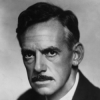Eugene O'Neill

Eugene O'Neill
Eugene Gladstone O'Neillwas an American playwright and Nobel laureate in Literature. His poetically titled plays were among the first to introduce into American drama techniques of realism earlier associated with Russian playwright Anton Chekhov, Norwegian playwright Henrik Ibsen, and Swedish playwright August Strindberg. The drama Long Day's Journey into Night is often numbered on the short list of the finest American plays in the 20th century, alongside Tennessee Williams's A Streetcar Named Desire and Arthur Miller's Death of a Salesman...
NationalityAmerican
ProfessionPlaywright
Date of Birth16 October 1888
CityNew York City, NY
CountryUnited States of America